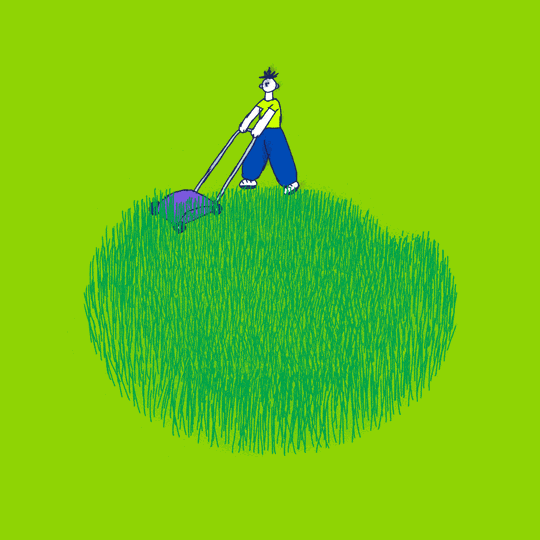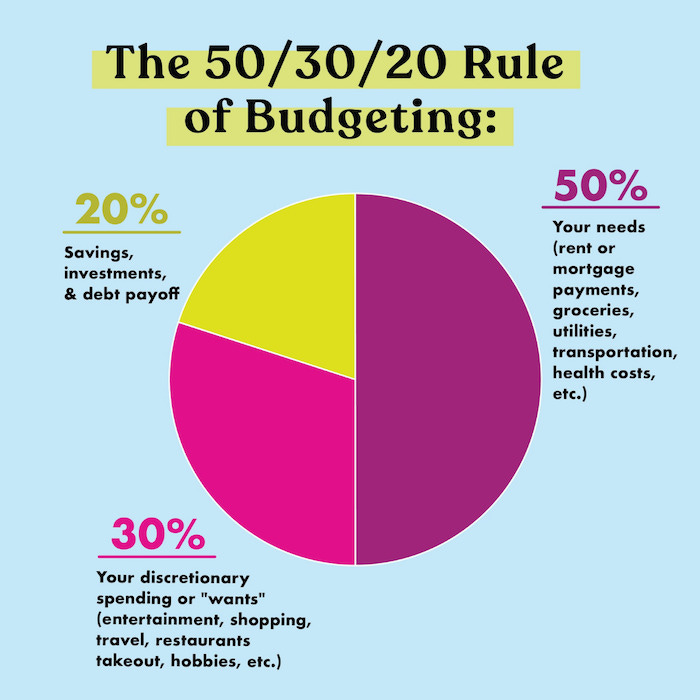This post is 1,384 words, about a 7-minute read. Enjoy!
With the rise in economic uncertainty, there has been a noticeable increase of videos in my YouTube Recommendation feed on "how to be frugal", "frugal tips", or "how to save money". These videos always have one of three things in them:
An obscure five move method on how you can reduce expenses by a miniscule amount.
An action that is borderline illegal.
Something that most people already do regularly.
I am always left with the same feeling after watching any of these videos.
“Well, that was informative, entertaining, and tickled all the right inquisitive and emotional sensors in my head. But that was a complete waste of time and was not that helpful.”
The tips typically require a repeated choice to be made.
A high dependence on will power.
The tips require too much effort for anyone to follow through on consistently.
Two quotes that frames why these videos are unhelpful:
Make the HARD decisions ONCE.
Make good habits easy to do and bad habits hard to do.
The biggest reason why these videos are not that helpful is because they focus on the edges and miss the core. They present the appearance of change taking place. In reality, all you are doing is staying busy and making no progress. A perfect way to think about this is with my yard.
It is springtime. Flowers are blooming. Birds are chirping. Mosquitos are biting. And the weeds are back dominating my grass. No matter how much I cut the weeds, in a week they will be back. Now I have a few options:
Ignore my lawn until it gets so bad that I have to hire lawn care specialists because my mower is no longer effective.
Cut my grass every week to keep it looking clean
Put weed and feed that will attack the weeds at the root and kill them or at least slow their continued growth.
Which option would you choose?
Option 1: Ignoring my lawn
I see it everywhere in my neighborhood. Folks avoid cutting their lawn for a long time and then when they try to cut it; I see them struggling using a regular mower. They eventually give up and call a lawncare service to bring in the big guns and it ain't cheap.
This is what most people do with their finances. Until things go wrong or until things get scary, we ignore all the warning signs that pop up once in a while. We assume because we escaped catastrophe so far; we will always be able to escape somehow. Unfortunately, the day shows up when it is no longer that simple and you have to bring in outside help and it is hardly ever on friendly terms.
Important to note, not everything that happens in life is our fault. People go through health issues that completely destroy their finances. This is more focused on things that are in our control, but we ignore because it requires effort.
Option 2: Weekly Cutting
This is the more popular option that is touted. It is what I thought was the only way to ensure that my lawn looked clean. It is what I did when I first moved into my house. Problem is I drained myself. I literally cut my grass every week. Every Saturday after soccer, I would done my farmer outfit, go in the heat and cut the grass. Even for someone like me who enjoys cutting grass; it was draining. It was always on my mind. I had to always plan around it. It prevented me from doing other things that were more important. The ultimate problem was I looked busy, but I was making NO LONG-TERM PROGRESS. I was right back in the same place week after week.
This is the frugal video tips and the "i put myself on x budget for the week" content that is so popular right now. The problem with this option is that it gets exhausting and eventually we give up. Because you have to always work up the willpower to make the right decisions over and over and over again. Then when you fail, because you will fail as I did with my lawn multiple times. You beat yourself up for not being able to stick to some arbitrary budget and not having enough discipline and willpower.
Option 3: Weed and Feed
This would be everyone's choice; however, option 3 comes with what would appear to be more work on the front end. I have to learn about what my lawn needs.
Do I need pre-emergent or post-emergent?
What is the best type to use for my type of lawn?
What kinds of weeds do I have growing right now?
Is it winter weeds or spring weeds?
How often should it be applied to ensure I don't kill my grass with the weeds?
How much will it cost to get these bags?
Do I have the space to store the items I need?
What other tools might I need to complete the job?
Is there a good time of day to ensure that I apply it by?
Then I have to go to the store, buy the bags of weed and feed. For me this is difficult because I am lazy and do not like leaving my house. Then I have to plan out when and how I will go about implementing the plan. I have to:
Pay attention to when rain will fall.
Cut the grass.
Apply the weed and feed.
Monitor the lawn to see how things are progress.
Reapply multiple times before it finally eliminated the weeds.
This option feels very overwhelming to start. It feels like more work and more effort in the short term. Leading most people to choose the other two options. But in the long term, it is the most worry-free and stress reducing option.
In our finances there are two parts that would be applying weed and feed:
Know Your NUMBERS.
Know what a need vs is a want.
Know how much you are saving and spending.
Know how much you owe.
Know when you will pay off your debts.
Automate everything
If your monthly core expenses combined is greater than 60%, it does not matter how many tips and trick videos on "frugal living" you watch, you will always feel squeezed.
There are two core expenses that you can make one decision and substantially set up your finances for success:
Housing: keep total housing including taxes, maintenance, insurance, bills below 35% of Net. Rent or Mortgage below 25% of Net Income.
Transportation: keep total transportation including car note, gas, insurance, maintenance, parking etc. below 8% of Net Income.
When you do the front work to get these two numbers set, it frees up so much more of your income to do other things. Sure, things can still get hairy but with the anchor of these numbers, it makes every other decision you make so much easier.
This is the work that is never spoken about on those videos. Because it is hard to express to people that unless you change your housing or you change your car, you will more than likely keep feeling stuck. Relying on discipline and willpower is not a recipe for success with money. Rather
Make the HARD decisions ONCE.
The second thing that is never spoken about is how to ACTUALLY save money. It is not about gritting your teeth and doing your best not to spend. To save money, all you need to do is AUTOMATE the process. Remove yourself from the loop. Set up direct deposit to a separate account or create automatic transfer to a separate account. An account set up for a specific goal. Then spend whatever is in your day-to-day account.
I have saved hundreds of thousands of dollars. I have never had to "try" to save money because it is automatically happening in the background. Every week, every month, every year. Always remember when it comes to saving money, the less you do the better your outcome.
Make good habits easy to do and bad habits hard to do.
Remember Generosity>greed!
God Bless You!
✌🏾
Recommendation Section
Axios put together a visual of Trump's First 100 Days. It really puts in perspective how much the Trump administration has changed the federal government. He has increased executive powers, defied courts, and used the government to target those he considers to be his enemy.
There is almost no writer I trust more than Morgan Housel. His ability to zoom out and think through finances and life from a 50,000 feet view is so good. He recently did a podcast on Tariffs. He provided history to give such good perspective on what is happening, My Thoughts on Tariffs, Economic History, and the Market Decline.
Doug and Heather Boneparth in "Invest For Kids" provides the ultimate breakdown of the best investment to make for your kids or in my case future kids.
There are hidden costs in almost everything we choose to purchase. Doug and Heather Boneparth have a series covering many of them. The latest topic is on Tariffs
🎙️Podcasts I love:
50Fires. It is by Carl Richards, a recovering Financial Planner and Advisor. He could help other people with their finances but had a difficult time talking about money with his wife and children. It has quickly become one of my most anticipated podcasts to listen to every week.
Money For Couples by Ramit Sethi. Ramit is no one new to the world of money and personal finance. In his podcast, he talks with couples about their finances and helps them better enjoy their money or better get aligned. This is very important podcast for me as I enter a new stage of life.











